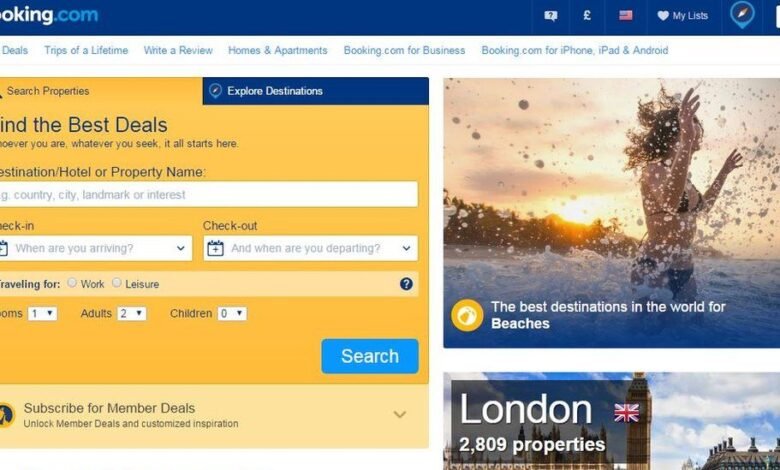Understanding and Avoiding the Booking.com Scam

Planning a vacation can be an exciting time, filled with anticipation and dreams of relaxation. With the rise of online booking platforms like Booking.com, it has become easier than ever to find and book accommodations. However, as with any online transaction, there are risks involved. In recent years, a new scam has emerged targeting unsuspecting travelers on Booking.com. In this article, we will explore the nature of this scam, provide tips on how to avoid it, and offer insights into the importance of staying vigilant when making online bookings.
The Booking.com Scam: How Does It Work?
The Booking.com scam typically involves fraudsters posing as property owners or managers on the platform. They create fake listings with attractive photos and enticing descriptions, luring travelers into making bookings and paying upfront. Once the payment is made, the scammers disappear, leaving the unsuspecting traveler without a place to stay and out of pocket.
These scammers often employ various tactics to make their listings appear legitimate. They may use stolen photos from genuine properties, copy descriptions from other listings, and even provide fake reviews to enhance their credibility. This makes it challenging for travelers to distinguish between genuine listings and fraudulent ones.
How to Spot and Avoid the Scam
While the Booking.com scam can be sophisticated, there are several red flags that travelers can watch out for to avoid falling victim:
- Unusually Low Prices: If a listing seems too good to be true, it probably is. Scammers often lure travelers with significantly lower prices than other similar properties in the area.
- Poor Communication: If the property owner or manager is unresponsive or provides vague answers to your questions, it could be a sign of a scam. Legitimate hosts are usually prompt and helpful in their communication.
- Unverified Hosts: Booking.com has a verification system for hosts, indicated by a “Verified” badge on their profile. Always prioritize booking with verified hosts to minimize the risk of encountering scammers.
- Research the Property: Before making a booking, conduct a thorough online search for the property. Look for any discrepancies in the information provided on Booking.com and cross-reference it with other reputable sources.
By staying vigilant and following these tips, travelers can significantly reduce their chances of falling victim to the Booking.com scam.
The Importance of Reviews and Ratings
Reviews and ratings play a crucial role in helping travelers make informed decisions when booking accommodations. However, scammers have found ways to manipulate this system by posting fake reviews to boost their credibility. To avoid being misled, it is essential to look for the following:
- Consistency: Check if the reviews are consistent in terms of language, tone, and content. Fake reviews often lack authenticity and may appear generic or overly positive.
- Reviewer Profiles: Take a closer look at the profiles of reviewers. If they have only posted one review or have a suspiciously high number of positive reviews, it could be an indication of fake accounts.
- Verified Reviews: Some platforms, including Booking.com, have a verification system for reviews. Look for indicators such as “Verified Stay” or “Verified Guest” to ensure the authenticity of the feedback.
By carefully analyzing reviews and ratings, travelers can gain valuable insights into the legitimacy of a property and make more informed decisions.
Conclusion
While the Booking.com scam can be a cause for concern, it should not deter travelers from using online booking platforms altogether. By understanding the nature of the scam and staying vigilant, travelers can protect themselves from falling victim to fraudulent listings. Remember to always be cautious of unusually low prices, poor communication, and unverified hosts. Additionally, pay close attention to reviews and ratings, looking for consistency and indicators of authenticity. By following these guidelines, you can ensure a safe and enjoyable travel experience, free from the worries of scams.




